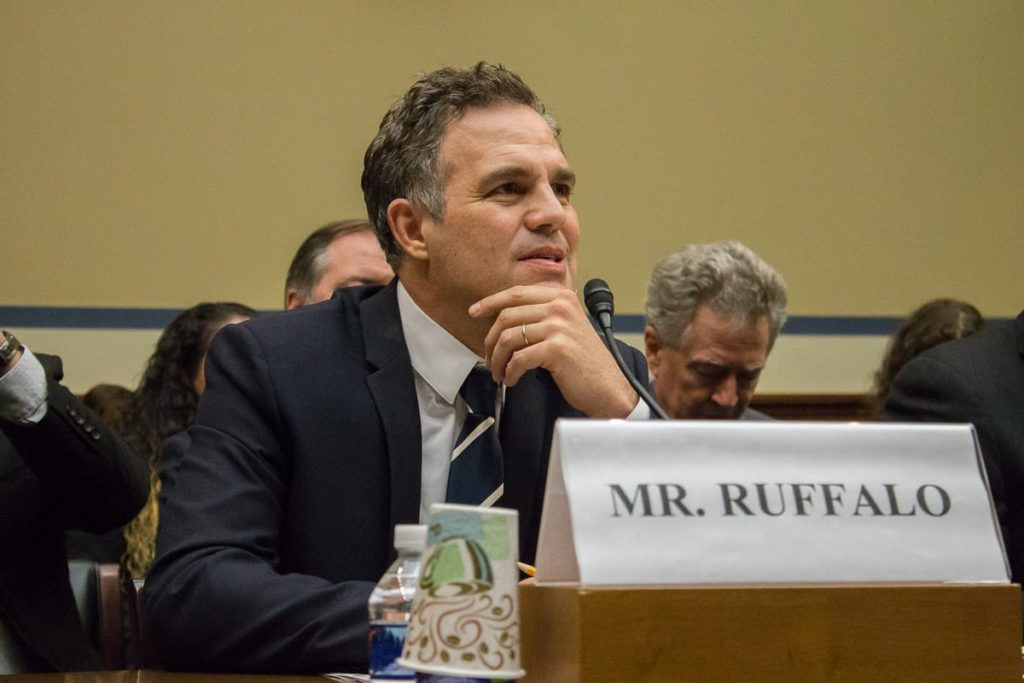WASHINGTON. D.C. — As a famous actor took center stage during a Capitol Hill hearing last month to demand stricter regulations of ‘forever chemicals’ in water, a longtime San Jose water company revealed that it has tested positive for those contaminants.
The news comes as California water officials this year began a statewide assessment of any possible ‘forever chemical’ contamination in drinking water.
Initial results released in the past two months show several regions in the state detected PFAS chemicals in the water. Testing from the San Jose Water Company detected very low levels of over a dozen types of PFAS chemicals in its wells. But even though there are standards for the levels at which the government needs to be notified about PFAS detection, there are no legal limits for PFAS in drinking supplies, nor are there any laws requiring those responsible for contamination to pay for cleanup.

“PFAS is one of those emerging contaminants that we are very concerned about,” said Eric Lacy, the state water board’s division of drinking water district engineer for Santa Clara County. “And as a program, we’re moving quickly to try to ascertain the extent of what that looks like for the water supplies. But as of yet there has not been studies performed that will establish a safe level for drinking.”
Liaan Walborsky, a spokeswoman for San Jose Water Company, says four of the company’s wells showed concentrated levels of PFOS, a kind of PFAS chemical. Walborsky said those wells were immediately taken out of service and they continue to remain shut off, though they’re not required by law to do so.
Almost every person in the United States has PFAS chemicals in their blood, according to a CDC report that studied human exposure to chemicals. Even if you’ve never heard of PFAS or forever chemicals, if you live in California, you’ve seen warnings about them. Proposition 65 requires businesses to warn Californians if their products contain a chemical that could cause cancer, birth defects or other reproductive harm. PFAS chemicals are listed in the database of almost 900 chemicals that require a Prop. 65 warning.

Back in 2013, the United States Environmental Protection Agency required all major water systems to collect samples of drinking water and analyze them for two types of forever chemicals: PFOA and PFOS. San Jose Water Company says their 2013 tests did not yield any detection of contaminants.
In April, the California State Water Resource Control Board ordered airports, landfills and nearby water systems to test for forever chemicals and report back by August. In a statement, the board also urged water companies to notify customers if chemicals were detected in amounts that exceed the level required for notification, but San Jose Water Company has not issued any press releases or public statements about the PFOS finding because it’s not required until Jan. 2020.
“There hasn’t been any need to put anything out publicly,” Walborsky said, reiterating that customers have no reason to be concerned. “I am not remotely worried about the water from San Jose Water being contaminated. At all.”
Although San Jose Water Company does not know how the four affected wells were contaminated, Walborsky said the company is looking for options to treat them. “We think that if anyone is responsible for polluting water, they should then be responsible for cleaning it up and paying for it,” she said.

The Environmental Working Group, a nonprofit advocacy group, has pushed for stricter regulation of PFAS chemicals. Their analysis of publicly-released data by the EPA and state governments estimates that the drinking water for up to 110 million Americans may be contaminated with PFAS. Scientists argue the guideline for PFAS chemical detection should be 1 part per trillion, or .1, even though current levels for notification and response measure around 5 parts per trillion.
Two weeks ago, the House Oversight and Reform’s subcommittee on the environment held its fourth hearing on the matter this year. Scott Faber, an attorney with EWG and adjunct professor at Georgetown Law, sat beside actor Mark Ruffalo; both urged lawmakers to force the EPA to regulate PFAS chemicals and crack down on manufacturers responsible for the contamination.
“In America it falls to us, the ordinary people, to prove that these chemicals are toxic before the chemical is regulated by our government. That is simply backwards,” said Ruffalo, who stars in a new movie about forever chemicals called Dark Water.
Two congressmen took issue with the actor participating in a hearing alongside expert attorneys and victims, questioning whether the actor was treating the hearing as a stunt to promote his new movie. San Jose Congressman Ro Khanna objected, later shaking hands with the actor.
Thank you @MarkRuffalo for testifying today on the harm PFAS cause to our drinking water. I was proud to object to the Republicans ad hominem attacks on your credibility. You uplifted the stories of heroes like Rob Bilott, who risk their careers to stand up to corporate polluters pic.twitter.com/WGLTaIYqRR
— Rep. Ro Khanna (@RepRoKhanna) November 20, 2019
One of Faber’s recommendations is that Congress pass a law requiring the EPA to consider PFAS as a hazardous substance. A bill to do just that, H.R. 535, was approved by the House Energy and Commerce Committee on Nov. 20 and recommended for a full House vote, though it’s unclear if or when the bill will be brought up for a floor vote in the House.
The California State Water Resources Control Board will continue gathering test samples until early 2020.
Gov. Gavin Newsom signed a law this summer that will requires water systems to notify the public if response level contamination of PFAS is detected in a water source and require the company to shut that source off. AB 756 goes into effect on January 1, 2020.
Contact Elizabeth Mendez at [email protected] or follow @izziemae on Twitter.



Leave a Reply
You must be logged in to post a comment.